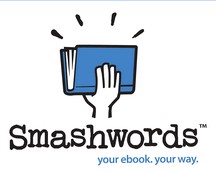 This post about getting delisted on Amazon is getting cluttered with new information, and I want to call attention to Mark Coker’s comment here. A short recap: my novel was delisted from the Amazon Kindle on Saturday because the price on Kobo (89 cents) is below the price that Amazon allows authors to set – which is 99 cents. The book is distributed to Kobo via Smashwords premium distribution. Instead of Amazon setting my price at 88 cents, their policy is to remove the buy button entirely.
This post about getting delisted on Amazon is getting cluttered with new information, and I want to call attention to Mark Coker’s comment here. A short recap: my novel was delisted from the Amazon Kindle on Saturday because the price on Kobo (89 cents) is below the price that Amazon allows authors to set – which is 99 cents. The book is distributed to Kobo via Smashwords premium distribution. Instead of Amazon setting my price at 88 cents, their policy is to remove the buy button entirely.
I want to reiterate: this is not Smashwords fault. I had set my book to override the default price so Kobo had actually posted the correct price with their own store discount. What this means is that if you want your book to remain on Amazon, you can’t set your book to be priced at 99 cents on Smashwords, as this will likely undercut Amazon’s policy. If you want your book to receive the 70% royalty for a $2.99 book, you cannot set your book to be $2.99 on Smashwords because retailers like Kobo will offer their own discount, which will also interfere with Amazon’s policy.
So this all stems from Amazon dictating what writers can do – knowing full well that they’re the biggest player in the game and writers would rather eschew all other outlets if it means being able to stay on Amazon. This is exactly the reaction of one writer and could be for many others.
Mark Coker, Smashwords CEO, responds to Amazon’s strong-arm pricing policies here:
 Back in the old days, when publishers set a price and conveyed that price to distributors and retailers, the price remained relatively static. At Smashwords, we give authors the ability to change the price as often as they want, so it’s an infinitely more dynamic world, but one that is still gated by new complexities regarding how these dynamic metadata updates filter through the ebook supply chain.
Back in the old days, when publishers set a price and conveyed that price to distributors and retailers, the price remained relatively static. At Smashwords, we give authors the ability to change the price as often as they want, so it’s an infinitely more dynamic world, but one that is still gated by new complexities regarding how these dynamic metadata updates filter through the ebook supply chain.
The collision of traditional wholesale pricing model with the agency model only compounds the complexity.
Before Amazon’s draconian price parity enforcement, such price discrepancies were mere annoyances. Now, Amazon metes out instant and harsh punishment to authors who, often though no fault of their own, are unable to maintain price parity. While I think Amazon is not wrong to expect price parity, their enforcement of price parity is over-the-top excessive. I have witnessed several authors and publishers, such as SL Armstrong above, remove their books from all non-Amazon Smashwords retailers – even agency retailers who don’t discount such as Apple and Diesel – for fear of risking Amazon punishment. Authors understand that the temporary delisting of a book can have severe long term consequences, because delisting destroys sales rank, and if you’re the best-seller in a category, loss of sales rank can mean the difference between making $500 a month or $50.
If Amazon wanted to do right by their authors, and do right by the industry, they’d soften their enforcement. If they persist with their policies, they’ll coerce more authors to become more dependent on Amazon, while causing authors to take actions that are counterproductive to their long term best interests. Authors should work to maximize distribution of their books, not concentrate it on a single retailer.
In the meantime, Amazon’s policies are brilliantly designed to take advantage of the inevitable and frequent glitches inherent in the nascent ebook distribution supply chain. This works to Amazon’s advantage, while harming the long term prospects of authors, publishers and competing retailers.
In the meantime, we’ll continue to work with our retail partners to accelerate the speed and accuracy at which they ingest our metadata, and we’ll continue to improve our own systems to reduce the likelihood of errant metadata. We’ll also work to improve our reporting to authors such as yourself so that such long-forgotten pricing configurations don’t come back to bite you in butt later on.
Get an Editorial Review | Get Amazon Sales & Reviews | Get Edited | Publish Your Book | Enter the SPR Book Awards | Other Marketing Services



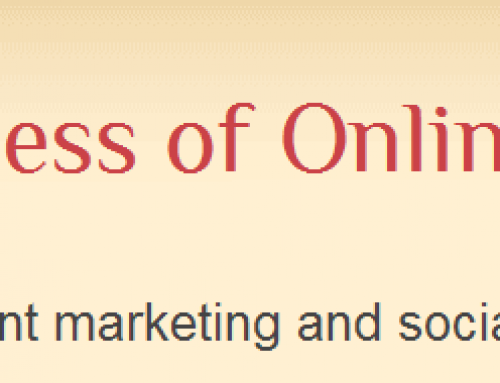




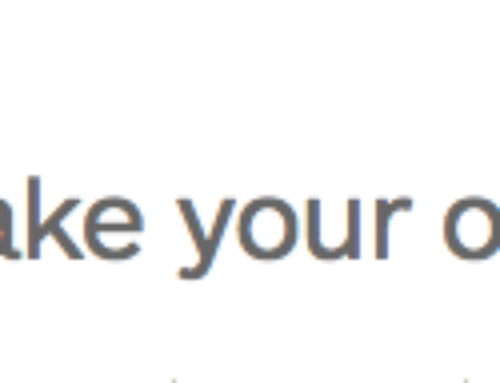
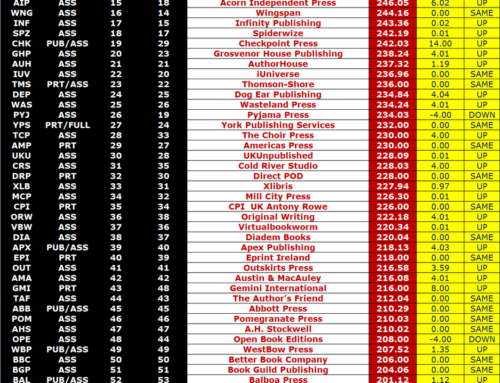





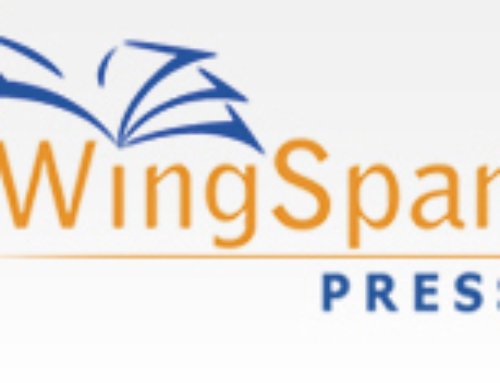
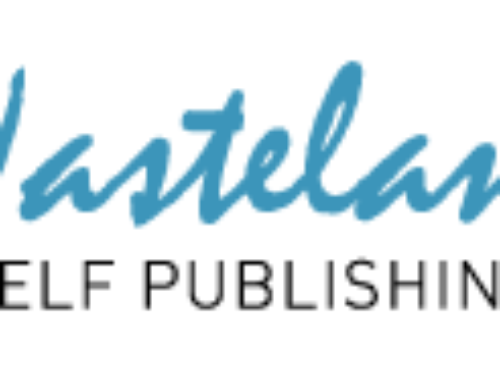





I wanted to say Mark was helpful in contacting me directly, and by the end of the day yesterday, things had been sorted out. I listed the book once more with all the retailers, but I was forced to increase the price in order to keep my listing status with Amazon. It’s frustrating, and it takes time away from what I might otherwise be doing to check other retailers to ensure they don’t discount below Amazon’s list price.
But it is a sad truth. I would rather lose a spot at the other retailers in favor of keeping my sales ranking and price with Amazon.
Much thanks to Mark for his courteous and helpful emails.
S.L. Armstrong
Why is this ‘draconian’? It’s amazon’s site and they can make the rules as long as they don’t violate the law. I don’t believe this does that. And do you really think you’ll sell more product at $0.88 than at $0.99?
I don’t understand the last point. What’s draconian is removing the buy button. Amazon’s free to try and compete by offering lower prices than competitors. That’s the nature of capitalism. But retail chains don’t normally remove a product from their shelves if the price is cheaper somewhere else. I would rather they offered my book for 1 penny than remove the ability to buy it entirely.
Retailers absolutely remove product if they can’t move it at a price that’s satisfactory. They are under no obligation to stock your or anyone’s product. You sell under *their* vendor agreement. You might not like it, but it’s not a legal or moral issue.
My point about $0.88 is that if $0.11 in discount is what’s driving your sales, you may want to rethink your plan.
Retailers removing a product if they can’t sell it is a much different process than removing an ebook from inventory – which takes up no space. And the retailer removing it due to poor sales is a different process than removing it automatically because another retailer sells it cheaper. That retailer will at least set the product at a lower price to see what happens. This is a different model.
I may be dense but I still don’t get your other point. What’s driving my sales is – the book being available to buy – the price isn’t the issue.
The overall point is that Amazon can afford to sell my book below their 99 cent threshold and still turn a profit. I could understand if the price were so low that they were taking a loss, but they’re not. And unlike the traditional retail scenario where a store might remove a product that’s not selling well, this is different. They actually chose to remove my book on a day when it was heading towards the top 100 in Kindle sales. So the strong-arming might ensure that there won’t be discounts on other sites, but it also costs them money, and it has a bad impact on writers.
Hi Don. It’s not about 88 cents vs. 99 cents. It’s about policies that force authors and publishers to make decisions that are counterproductive to the author/publisher’s long term interests. It’s about imposing an unforgiving, unrealistic requirement for instant and real-time parity, and punishing authors/publishers whose books fail the test through no fault of their own. Are Amazon’s policies legal? Sure, probably. Are they good for anyone but Amazon? No.
Mark, I am sorry but authors have been forced to make decisions “against their best interests” since Gutenberg. Signing with a publisher of any kind has always been a form of indentured servitude, with restrictions and control. There’s only one future where this will stop happening, and that is when every author owns his own bookstore.
Personally, I did opt out of Kobo’s because the few sales there were nowhere near making up for the discounts they triggered at Amazon. That’s Kobo’s mistake. I am going to do what’s best for me (while, of course, I prepare for the future by setting up my own store at my own site.) You do a great job and I am grateful for all the opportunities, but I foresee all this as a dynamic enterprise–some will survive, some will thrive, many will die, just as in every era. The only thing I will bet cash on is that the way it is now is not the way it will be in five years. So I will do what is best now and worry about later later.
Scott Nicholson
Coming “from” tech world a frequent discussion starter is, “how do I monetize my following on xyz.” This discussion is being held at Twitter every day, and at FB regularly. Build it and they will come, has been done – now it’s how do we make money out of “they”.
At the moment, Amazon have the early starter lead in monetizing the “they” of books; they simply dwarf everyone else in the supply chain. Their policies are clear, and stated up front. Amazon is NOT focused on writers; they’re focused on their customer, and of course their P&L. Kobo and other small on-line retailers will (are) lose the access to product if they don’t acknowledge this.
Scott’s point on the rapid change is valid. But authors individual web sites are not going to change the game. Companies that could change the game in the near future. Microsoft, Yahoo, Nokia, and Google (what they’re doing is not working for them – they may have a another go).
I’ve opted out of all premium distribution at Smashwords until things get sorted out.
I think that’s a little drastic – because Amazon’s probably not going to change their policy. So setting your price on Smashwords a couple dollars above whatever you charge on Amazon will protect you against this policy.
HOWEVER, opting in for Kindle distribution on Smashwords means that the Kindle price and the Kobo price would be distributed with the same price – so a Kobo discount would indeed be problematic. Ugh, I wonder if Mark could comment on that.
Personally, I’ve opted into everything except Kindle distribution on Smashwords so I could control my price on the Kindle individually.
Drastic? Maybe, maybe not. There’s all the time in the world for these things to shake out. I don’t want to be derailed by policies I have no control over.
So I’m not going anywhere near Kobo for now. They have one of my shorts over there that I don’t remember ever sending and which is selected for opt-out at Smashwords. But because it’s free, I haven’t minded. But I will still keep everything else out of premium distribution until this problem shakes out.
Right now, Amazon has the monopoly on the ebook market. They make the rules. They are certainly giving authors a great opportunity.
The point is though you do have control over this. If you set your Smashwords price at $5 and your Kindle price at $3 (for example), you won’t have a problem. Better to be distributed as many places as possible.
That’s not having control. That’s an available response. If I had control, I’d be able to keep my price at 2.99 everywhere.
I don’t want to raise my Smashwords price to 5.00 or even 4.00, not for a novella.
You’re right, it’s not perfect control. But you may never be able to control how Kobo discounts books. You can at least control that Amazon won’t delist it by pricing the book effectively. I see your book’s $2.99 on Amazon – isn’t it better to have the book priced higher somewhere? That’s how I look at it. Even if no one buys it, the visibility is useful.
Except that from this reader/buyer (and non-kindle user) perspective you just lost a sale. I refuse to buy a book that costs me more on SW than at Amazon. And I check *every* book that I purchase on SW for price disparities.
Why? Instead of buying it at the cheaper place, you refuse to buy the book at all?
Maybe you missed the “non-kindle user” part of my response. I shop SW because I use a Sony reader, so it wouldn’t make any sense to buy Kindle format, would it? Also, I feel like I’m being treated like the red-headed stepchild of the ereading community because I don’t use a Kindle. Just raise the prices…let them eat cake! No thanks, I’ve had enough cake. I’ll just buy someone else’s book. I have seen some very significant differences between pricing on Amazon vs. SW–sometimes it is just a matter of principal, ya know. As Chris Northern said in his post below, “Buyers buy where they choose to at the price they choose to pay”.
LK’s solution of offering a coupon to address the disparity is more considerate of the buyer and the non-kindle user and SW should be recommending this as well as a solution instead of just saying raise your prices.
Ah OK, that makes sense. I used to be a Sony user – it broke, now I’ve got an iPad so I’m Kindle compliant. I still think it’s a shame to not buy a book because of a couple dollars difference, especially if as you see here it’s not the author’s fault. It’s true about coupons, but that’s more on a buyer by buyer basis, like from an author’s site promotion, rather than something that can change via distribution. But maybe as Neil Crabtree mentions below, that can change.
(P.S. I’ve fixed nesting comments so it can go 10 deep. I think Neil was responding to your comment and it shows up at the bottom)
(Not sure if this will get nested or go to the end of the post so will quote it here.)
Henry said: “I still think it’s a shame to not buy a book because of a couple dollars difference, especially if as you see here it’s not the author’s fault.”
1) A “couple of dollars” can equal a whole other book on SW, so it is pretty significant.
2) There is no way for me to know if a book is priced higher due to the Amazon issue or just plain greed, and frankly I don’t care. I saw one ebook priced at $3.99 on Amazon and $9.99 on SW…WTF? That is just gouging IMO.
3) If the author sets the price, then yes, it is the author’s fault. It may be in reaction to Amazon’s crappy practices but it is still the author’s *choice* to raise the price.
4) Price is one of the first ways I rule out a book for purchase. I don’t *need* to buy a book. I have enough books on my TBR to last me about 10+ years. The author needs to make me *want* the book and a higher price won’t do that. I have a set range I’m willing to spend on an ebook (and that also varies with the word count). If it goes over that amount, with a few rare exceptions, I will pass it by and move on to something else.
Just curious… why has nobody suggested raising the price on Amazon instead of SW?
LK, I think you just confirmed the point I tried to make above. These Amazon policies cause authors to take steps that are counterproductive to their long term interests. In your case, if you opted out of all retailers Smashwords distributes to, then you also opted out of Apple, a retailer that doesn’t discount. You threw the baby out with the bathwater. Every author should be at Apple (soon, we’ll have nearly 10,000 Smashwords titles at Apple).
I agree with Henry – it’s in every indie author’s best interest to maximize book distribution, not limit it. Henry’s suggestion to raise the price at Smashwords makes sense as a temporary solution until more retailers move to agency-like pricing policies.
I see your point, Mark. Hmm…
Re visibility, that’s a good point.
I suppose I could raise it to 3.99 and use a 1.00 discount coupon at Smashwords.
I think that is a better approach than flat out raising prices. Thank you for keeping the readers/buyers (and non-kindle users) in mind.
Kindle is, by 5x, the best moneymaker we have. They have more readers out there, the biggest selection of titles, the best presentation of titles, make the best use of a book reader’s browsing time, suggest likely purchases, and still generate the most buzz among readers. Kindle IS the game.
Sony has sold for me 20 percent of what Kindle has sold for me in a given quarter. Its online presentation, etc. is klunky, uninspired. It generates, and I believe it will always generate, adjunct income at best.
Apple is running a secret store you cannot access while deciding which reader is right for you. Sales are so far running 20 percent of Kindle sales. I can’t see how they’ll continue to make up ground they’re continuing to cede to Kindle because they remain, as they have been from day one in the 1970s, retail dumbfucks with a bad attitude.
Kobo is run by a covey of amiable boobs who cannot tell the difference between an ass and deep centerfield.
It remains to be seen if Google can sell you a book without stealing something in return.
The top dog is, by far, Kindle. Why are you even discussing the relative merits of a field of also-rans? When there’s serious competition–as in the case of iBooks before the iPad launch–Amazon invariably responds with a killer plan meant to retain its leadership position. Why else are we getting the gift of lots more than 35 percent on most of our Kindle book sales? Why else is the price of a Kindle reader plummeting at this precise moment? (I could do a doctoral dissertation on Amazon’s elegant marketing plan, which we now see unfolding into phase two. It’s a classic.)
Does anyone here =not= think that a desperate-seeming Kobo knows that they’re causing us grief by forcing us into contention with our by-far biggest customer? Better we help put Kobo to sleep via benign neglect rather than get kicked in the shins while it’s flailing around. At root, Kobo is a fairly good marketing plan in the hands of idiots. If Kobo fails, its customer base isn’t going to stop buying stuff to read.
For a guy who spent his middle decades as a marketing practitioner, the ride we are on right now encapsulates just about everything humans know about demand creation and fulfillment. It’s a killer marketing show in a flat, lightweight metal-and-plastic box with reflowable text. The same people who are replacing something as fundamental as =the book= will no doubt follow up on this brilliant success by creating a grassroots demand for a new and horrible disease, just so they can sell us a cure they already have in hand.
Eric, if I follow your math, Sony and Apple each sell 20% of what Amazon sells, therefore (20+20)/100+20+20 means that 28% of your total sales are coming from Sony and Apple. Doesn’t it then stand to reason that if you sell your book also at B&N, Kobo, Diesel and other smaller retailers that these non-Amazon retailers, even though each individually is much smaller than Amazon, in combination will one day contribute to 50% or more of your revenues? Authors should embrace all the retailers. Support Amazon with gusto, but don’t ignore the others. Each retailer reaches a different audience. B&N reaches the nook and their multi-platform apps; Sony reaches their customers; Kobo reaches readers for their own device, plus their multi-platform apps, plus the other ebook stores they power such as Border & stores in Australia/New Zealand, or their new Samsung deal. There are many other ebook retailers, and each caters to a unique audience of readers you can’t reach anywhere else.
Mark, I absolutely don’t ignore the others, but only up to a point within the bounds of reason. Yes, each retailer after Amazon contributes incremental income, and in the end their contributions might add up to even more income than Amazon throws off. But, in the here and now, I judge Kobo to be (a)the weakest of the ebook retailers (even though it has the best marketing plan except for Amazon’s) and (b) the source of potential problems with Amazon that aren’t justified by its performance.
I’m not a Smashwords person. I came to my conclusion about Kobo from dealing directly with Kobo, but also by filtering their performance in my behalf through my many years in advertising and marketing, plus my running my own businesses for going on forty years (of which twenty-five have been devoted to running my own publishing imprint).
Another point is potential diminishing returns on effort. I have formatted all my ebooks in Word for Kindle, then reformatted them as epubs for Sony, Kobo, and Apple, plus Google editions. Kobo wants a flavor of epub I don’t want to make that they’ll make for a modest charge I don’t think I’ll earn back from them in a year. I’m not now willing to spend that money.
I make more money on a monthly basis from POD sales generated via Lightning Source than I do from all the non-Kindle ebook sales combined. This comes from years of branding myself and my imprint. I do it without actually ever touching a single copy of any of my imprint’s titles.
As I said in the post to which you’re responding, readers will get the books they want as long as they’re out there. Even if, heaven forfend, they have to resort to buying an ink-and-paper copy. I’ll be there for them any way they want to go as long as that way doesn’t disturb my equanimity. After all, we’re just providing entertainment, not cancer treatment. In the meantime, Amazon, including Kindle, provides the best, most reader-friendly browsing and purchasing environment out there, by far. No surprise there, because it’s Amazon that changed the American book world, alone and for all time. I have my issues with doing business with an autocratic Amazon, but none of them get in the way of my marveling at each new wrinkle they introduce, nor of my riding the gravy train they provide.
I’m thoroughly willing to admit that I could be wrong, here, but there’s something I don’t agree with. Note: I’m not a lawyer, so whatever you do, don’t take my word for this.
(note: I’m using ‘list price’ and ‘suggested retail price’ interchangeably, meaning the price assigned a book by the author, with Smashwords or Amazon. These should NOT be confused with ‘actual retail price’, which may be higher or lower than what the author set)
Here’s the pricing agreement from Amazon:
Now, to my understanding, this means that I’m obliged to provide the same (or higher) _list_ price or _suggested_ retail price to all retailers. Meaning that if I list a book with Amazon for 99c, I need to set the book at 99c with Amazon. IF a retailer chooses to discount the book further, that’s NOT my problem. What IS my problem is if I list a book for 1.19 with Amazon and 0.99 with Smashwords.
Now, where it gets confusing is with the new 70% royalty option, which adds a few more provisos, including:
My interpretation: If I sign up for the 70%-royalty and have provided the same list price/suggested retail price of $2.99 everywhere, and Amazon find my book discounted by another retailer, Amazon might discount my book to match other retailer’s discounted price. If they do that, I’ll only get 70% of the discounted price.
I haven’t YET come across an example of an author providing the same list price everywhere, the correct retail price being recorded at every retailer, the book being discounted by a retailer, and Amazon pulling the book. I’m not saying it hasn’t happened – but I strongly suspect Amazon would admit a mistake in those circumstances.
I certainly don’t plan to provide different list prices to Smashwords and Amazon, and if it turns out I’m incorrect in my legal interpretations – fine. If I MUST publish with Amazon, there are ways to get around the problem without changing list price.
GAH.
“Meaning that if I list a book with Amazon for 99c, I need to set the book at 99c with Amazon.”
should be:
“Meaning that if I list a book with Amazon for 99c, I need to set the book at 99c with Smashwords.”
Just for grins and chuckles, here’s a post I make on September 2 on Henry’s “My Day on Kindle Nation” blog:
What Henry describes [and what we’re debating in this blog] is called restraint of trade. I’m no lawyer, but I believe this behavior can have serious implications if it occurs across state lines. If it becomes a big enough issue, and Amazon itself pisses the Feds off on enough other issues, it could become something Amazon regrets. There is also a principle in contract law regarding the relative size and power of signatories to a contract, like the terms we are all required to sign before we can post on Amazon.
I said above that there is huge room for mischief when an entity like Amazon throws the behavior of large third parties (Apple, Kobo, et al) into the laps of little and essentially powerless second parties (you and me). If Amazon’s actions end up requiring or modifying behavior such that we sever ties with Amazon’s competitors, we’re back to restraint of trade.
This could get interesting before it gets resolved.
Well, we are only powerless if we choose to be powerless. All that is necessary for evil to prevail is for good men to do nothing. The great thing about what Mark Coker is doing is that for the first time power resides in our hands and no longer with the publishers. What Amazon is doing is restraint of trade (well noticed). I have expressed my view to Mark in private and will do so now in public:
that I would rather do business with you (smashwords) than Amazon and if it came to the choice Amazon would go in the bin. Freedom for writers has been a long time coming and I will not swap one “arbitrary self-serving autocratic dictator” for another. Just my personal feeling, not meaning to force it on anyone.
FWIW, the power actually resides in our consumers, the readers of books. We are well advised to keep that thought paramount in our lives as booksellers, no matter how we sell the product.
Amazon has done a spectacular job of providing a convenient, pleasant, highly useable platform for selling our product, in whatever forms =we= choose to produce. Readers go there because they enjoy the buying experience. They do not care what we think of Amazon’s business practices, if they even know what we know.
People who don’t like Amazon or can’t get there buy their books elsewhere. It behooves us to offer our product elsewhere, just as Mark and I discussed above. But we have to do what’s worth doing, and not what’s not worth doing. What that is has to do with our personal tolerance levels.
It’s worth telling this story: In the late 1990s, when I had only hardcopy books to sell to Amazon, they demanded a 55 percent discount, which is more than I offered to retailers who were buying way more books per order and in aggregate. I said, “Nothing doing.” The buyer =immediately= wrote back to offer to buy single copies for 20 percent off if it was okay with me if Amazon ordered only when they had a customer order. Damn right it was okay with me.
This is when I learned that Amazon will do just about anything to avoid turning away a customer. I have reason to believe that this remains a core imperative even though Amazon is way bigger and way more established than it was when I inadvertently pushed this particular button. They just did this preemptively, on a way bigger scale, in full view of the world, ahead of the iPad launch. They also caved to the agency royalty formula, and they continue to cut their margins on Kindle readers in the face of direct and directed competitive pricing.
The more we know about how particular booksellers think and act, the more power we have.
One solution, Mark, is to give authors a way to deal with the retailers individually. Then, I might set the price at Kobo to $1.29, knowing they’ll knock it down to $.99. Instead of having one price going out to all, have prices individualized per retailer. I can see giving $.99 to Apple and $1.29 to Kobo, anything to keep in the Amazon mass market catalog. When the big shake-out comes, we want Smashwords and Amazon to still be there. If I could drive Borders customers directly to Smashwords, I would have a policy that works for everybody.
Hi Neil, it’s an interesting idea, though such a system would exacerbate the lack of price parity. I think price parity is a good thing, especially if it’s the author determining the price. The only way to get there is for retailers to abandon discounting. Most indie ebooks don’t need to be discounted anyway. The average price of Smashwords books, set by our authors, is $4.60.
Eric, indeed so to all of that; the power that resides in my hands now is the power to put my work in the marketplace precisely so that potential buyers can have the power to say like/buy don’t like/not buying. I’m good with that; it’s as I should be. But I am also a reader and can apply that pressure at my own discretion; as you say, Eric, my own personal tolerance levels (pretty low, admittedly – I like the freedom from publishers and I’m not going to put manacles back on just because they are pink and fluffy and now have benefits).
I look at the whole issue very simply and this exact way; I set a price with smashwords, I’m done; it goes other places and they take a cut; not interested too much so long as it isn’t massively greedy; they discount it out of their end as they see fit and I’m not slightly interested. Buyers buy where they choose to at the price they choose to pay. No one should have a problem here. No one.
Does that mean I can opt out of Kobo or anyone else that threatens my Kindles sales? Opting out of one price altering retailer should not effect my Premium status. Waiting for major retailers to change policy is like waiting for Muslim nations to convert to Christianity. Not happening in my lifetime.
Yes, you can opt out of any retailer without affecting your Premium status, and then if and when the retailer changes their policy, or if you later decide it was a mistake to miss out on that retailer’s reach, you can opt back in.
This is certainly the most generous option offered by any digital publisher. Writers need to have more forums to share data. I’m not sure charging $1.29 verus $.99 makes any difference. As I get more time, I intend to research this.
I tried to find a way to offer coupons to specific retailers, for example Stanza. If there was a way to give a coupon out to new retailers selling the book, good for a specific period, this would be a great marketing tool, and Smashwords may be the only pub flexible enough to enable this. In other words, Kobo readers could get my book free using a coupon for the first 60 days, then pay the retail price set by Kobo, which discounts the inflated price I set for them at Smashwords Premium to match the Amazon price but not go below it. Complicated, but no harder than ceratin formatting issues.
What’s weird is Amazon invented the undercutting in the first place. I was in the computer business when Amazon started, and I know the sold items below cost to gain market share. Retailer Specific Coupons–could this be a Smashwords first?
The new Style Guide is beyond excellent. A great help just got better.
I’m going to try to worry about writing and reading, and let the corp execs figure out policy. We are all lucky to be able to have the resources available to us we have. Just when I’d about given up, I can now get my books to customers of B&N, Borders, Sony and Apple, as well as Amazon. What am I bitching about?